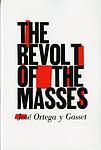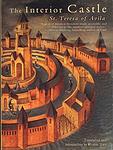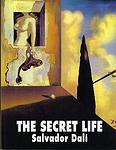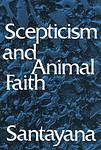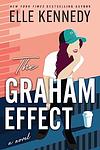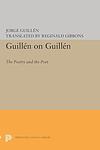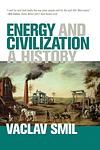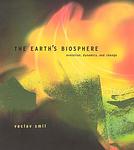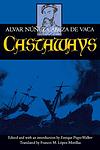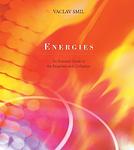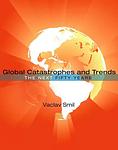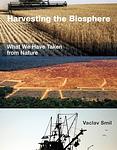The Greatest Czech, Spanish "Nonfiction" Books of All Time
Click to learn how this list is calculated.
This list represents a comprehensive and trusted collection of the greatest books. Developed through a specialized algorithm, it brings together 300 'best of' book lists to form a definitive guide to the world's most acclaimed books. For those interested in how these books are chosen, additional details can be found on the rankings page.
Genres
Countries
Date Range
Reading Statistics
Click the button below to see how many of these books you've read!
Download
If you're interested in downloading this list as a CSV file for use in a spreadsheet application, you can easily do so by clicking the button below. Please note that to ensure a manageable file size and faster download, the CSV will include details for only the first 500 books.
Download-
1. The Revolt of the Masses by José Ortega y Gasset
"The Revolt of the Masses" is a philosophical work that discusses the rise of the "mass man" and the potential danger this presents to society. The author argues that the mass man, characterized by his lack of individuality and rejection of higher values, is a product of modern society and its emphasis on equality. He believes that this mass man, who is more concerned with his rights than his responsibilities, threatens to undermine the very foundations of society, leading to potential chaos and instability. The book serves as a warning and a call for a return to individual responsibility and respect for higher values.
-
2. The True History of the Conquest of New Spain by Bernal Díaz del Castillo
This book provides a first-hand account of the conquest of Mexico by the Spanish during the 16th century. It offers a detailed narrative of the events, battles, and interactions with native tribes, including the Aztecs. The author, a soldier in the Spanish army, provides a unique perspective on Hernán Cortés and his tactics, the politics of the time, and the cultural and religious practices of the indigenous people. The book also highlights the hardships, challenges, and ethical dilemmas faced by the conquistadors.
-
3. Journey to the Alcarria by Camilo José Cela
"Journey to the Alcarria" is a travel literature piece that takes the reader on a journey through the Alcarria region in Spain. The protagonist, a solitary traveler, explores the landscape, culture, and people of this region, offering detailed descriptions and observations. The narrative captures the essence of Spain's post-war period, revealing the harsh realities of rural life and the resilience of its people. The book is both a physical journey through a specific place and a metaphorical journey into the human condition.
-
4. Mortal y rosa by Francisco Umbral
"Mortal y Rosa" is a heartbreaking and poignant narrative about a father's grieving process after the loss of his young son. The novel is a profound exploration of death, love, and loss, with the author using beautiful, poetic language to express his deep sorrow and pain. It is not just a lamentation, but also a reflection on life, childhood, and the fleeting nature of time. The book is a testament to the power of words in expressing the inexpressible and a moving tribute to a life cut tragically short.
-
5. The Interior Castle by Teresa of Avila
"The Interior Castle" is a spiritual guide that uses the metaphor of a castle with seven chambers, or 'mansions', to explain the journey of faith. The author describes each mansion as a step closer to God, with the innermost chamber representing union with the divine. The book explores various spiritual concepts such as self-knowledge, detachment, humility, and divine love, providing a roadmap for personal transformation and spiritual growth.
-
6. The Poems Of St. John Of The Cross by John of the Cross
The book is a collection of mystical poetry written by a 16th-century Spanish monk who explores the profound depths of Christian spirituality and the soul's journey towards union with God. Through his lyrical verses, the author delves into themes of love, suffering, and the quest for spiritual purification and enlightenment. His poems are celebrated for their rich imagery and emotional intensity, reflecting his own experiences and the contemplative life. The work is considered a pinnacle of Spanish literature and a significant contribution to Christian mysticism, offering readers a path to understanding the complexities of the divine and the inner workings of the soul.
-
7. Greguerias by Ramón Gómez de la Serna
The book is a collection of witty, poetic, and often surreal aphorisms and reflections that blend humor, irony, and keen observation to capture the essence of everyday objects and experiences in a unique and thought-provoking way. These brief, imaginative musings offer a window into the author's playful mind, as he transforms the mundane into the extraordinary with his inventive use of language and metaphor. The work is a testament to the author's innovative spirit and his ability to see the world through a lens of whimsical creativity.
-
8. Women In The Resistance And In The Holocaust by Vera Laska
This book provides a poignant and comprehensive historical account of the courageous roles played by women during one of history's darkest periods. It delves into the diverse and often overlooked contributions of female fighters, partisans, and activists who stood against the oppressive forces of the Nazi regime during World War II. Through personal narratives, testimonies, and documented events, the book highlights the resilience, bravery, and sacrifices of these women, who not only participated in the resistance movement but also endured the horrors of the Holocaust, offering a vital perspective on their indispensable role in the struggle for freedom and justice.
-
9. Living In Truth by Vaclav Havel
"Living in Truth" is a collection of essays and speeches that delve into the moral and existential struggles of living under an oppressive regime. The work explores the nature of power, truth, and individual responsibility in a society where the official narrative often contradicts reality. The author, a dissident playwright turned political leader, argues for the importance of living with integrity and maintaining a commitment to truth as acts of resistance. Through personal anecdotes and philosophical reflections, the text serves as both a critique of totalitarianism and a guide for maintaining one's humanity in the face of systemic deception and coercion.
-
10. The Secret Life Of Salvador Dali by Salvador Dali
"The Secret Life of Salvador Dalí" is an autobiography that offers an intriguing glimpse into the mind and life of the renowned surrealist artist. Written by Dalí himself, the book explores his early years, his rise to fame, and the development of his eccentric and flamboyant persona. Through vivid, often bizarre anecdotes and reflections, Dalí shares his thoughts on art, his obsessions, and his relationships with other famous figures of the 20th century. The narrative is characterized by its imaginative prose and the artist’s characteristic blend of arrogance and insight, providing a unique perspective on his creative genius and complex personality.
-
11. Scepticism and Animal Faith by George Santayana
"Scepticism and Animal Faith" is a philosophical work that presents the idea that knowledge is not found through evidence or reason, but through animal faith, a term referring to instinctive beliefs. The book delves into the nature of perception and consciousness, and argues that all human knowledge is grounded in unproven preconceptions. The author suggests that to understand the world, humans must first acknowledge their own preconceived notions and biases, and then attempt to understand the world through a lens of skepticism.
-
12. My Last Sigh by Luis Buñuel
"My Last Sigh" is an autobiography that offers a candid and vivid account of the life and career of one of cinema's most groundbreaking and influential directors. The book delves into his early years in Spain, his deep friendships with prominent artists and intellectuals, and his experiences in the surrealist movement. It also explores his creative process, the making of his major films, and his philosophical and personal reflections. Rich with anecdotes and insights, the memoir provides a unique window into the artistic, social, and political climates of his times, revealing the complex and often contradictory nature of a fiercely original filmmaker.
-
13. The Diaries by Franz Kafka
The book in question is a collection of personal writings by a prominent 20th-century author, chronicling his complex inner life over a period of several years. These diaries offer a window into the writer's introspective and often troubled mind, revealing his struggles with self-doubt, existential angst, and the creative process. The entries range from mundane daily events to profound philosophical reflections, providing insight into the author's relationships, his Jewish identity, and the socio-political context of his time. The diaries are a key source for understanding the author's enigmatic works, as they illuminate the thoughts and experiences that shaped his unique literary voice.
-
14. Guillén On Guillén by Jorge Guillén
"Guillén on Guillén" is a reflective literary work in which the poet himself delves into the essence of his own poetry, offering readers an intimate exploration of his creative process and the thematic underpinnings of his work. Through a series of essays and commentaries, the poet provides insight into his artistic vision, the philosophical and aesthetic considerations that shape his verse, and the personal experiences that inform his poetic expression. This self-analysis serves as a valuable resource for understanding the poet's contributions to literature and the broader context of 20th-century poetic movements.
-
15. Energy by Vaclav Smil
This book provides a comprehensive exploration of energy in its various forms, tracing its role throughout human history. The author delves into the science of energy, from the muscle power of prehistoric humans to the modern era's reliance on fossil fuels and the potential of renewable sources. With a focus on the environmental and societal impacts of energy consumption, the narrative emphasizes the importance of sustainable energy practices. Through a blend of historical context, scientific analysis, and a look at current energy challenges, the book offers a deep understanding of the essential role energy plays in shaping civilizations and the urgent need for a more efficient and environmentally friendly approach to energy use.
-
16. The Life Of Saint Teresa Of Avila By Herself by Teresa of Avila
"The Life of Saint Teresa of Avila by Herself" is an autobiographical account of a 16th-century Spanish nun, Saint Teresa of Avila, who played a crucial role in the reform of the Carmelite order. In this book, she details her spiritual journey, describing her mystical experiences, visions, and the challenges she faced while striving for a deeper relationship with God. Her introspective narrative not only provides profound insights into her personal spiritual struggles and achievements but also offers guidance on prayer and devotion, making it a significant work in Christian mysticism and contemplative life.
-
17. The Earth's Biosphere by Vaclav Smil
This book provides a comprehensive overview of the Earth's biosphere, exploring the complexity and resilience of life on our planet. It delves into the intricate relationships between the biosphere's various components, including ecosystems, organisms, and the physical environment, while also examining the impact of human activities on these natural systems. The author synthesizes a vast array of scientific knowledge to present a detailed yet accessible understanding of how the biosphere functions, its evolutionary history, and the critical challenges it faces in the modern era. Through this exploration, the book highlights the importance of sustainable practices to preserve the delicate balance of life on Earth for future generations.
-
18. Space In Motion by Juan Goytisolo
"Space in Motion" is a reflective exploration of the concept of space as it relates to human experience, culture, and history. The book delves into the ways in which space is perceived, constructed, and navigated, offering a philosophical and literary examination of the subject. The author weaves together a tapestry of ideas, drawing from various disciplines and perspectives, to challenge the reader's understanding of space beyond its physical dimensions, considering its impact on identity, memory, and our place in the world. Through a blend of narrative and critical thought, the work invites contemplation on the fluidity and dynamism of space in our lives.
-
19. Creating The Twentieth Century by Vaclav Smil
This book provides a comprehensive analysis of the technical innovations and scientific discoveries that fundamentally transformed the 20th century, laying the groundwork for modern society. It delves into the period from 1867 to 1914, which the author identifies as crucial years when core technologies such as electricity, the internal combustion engine, and basic chemical processes were developed. These innovations, the book argues, set the stage for the unprecedented economic growth and improvement in human well-being that characterized the 20th century. Through a detailed examination of the interplay between technological advancement and societal change, the narrative explores how these foundational developments have shaped the contemporary world, highlighting both the positive outcomes and the challenges they have brought.
-
20. Castaways by Alvar Núñez Cabeza de Vaca
"Castaways" is a historical narrative that recounts the experiences of an early Spanish explorer who, along with his crew, shipwrecks off the coast of Florida. Stranded in unknown territory, the survivors must learn to adapt to the harsh environment, interacting with native tribes and navigating through unfamiliar landscapes. The story is a testament to human resilience and the profound impact of cross-cultural encounters during the age of exploration.
-
21. Energies by Vaclav Smil
This book provides a comprehensive exploration of the various forms of energy that power the planet, from traditional fossil fuels to renewable sources like wind and solar power. The author delves into the scientific principles underlying energy conversion, storage, and transmission, offering insights into the complexities of energy systems and their impacts on the environment and society. Through a detailed analysis, the book presents a balanced view on the challenges and opportunities of transitioning to a more sustainable energy future, emphasizing the need for informed policy decisions and technological innovations.
-
22. Global Catastrophes And Trends by Vaclav Smil
This book provides a comprehensive analysis of the major natural and human-induced disasters and trends that have the potential to significantly alter the course of human civilization. It delves into a wide array of topics, from environmental degradation and climate change to the risks of nuclear warfare and pandemics, offering a detailed examination of their causes, impacts, and the likelihood of their occurrence. The author meticulously assesses the probability and severity of these global challenges, combining scientific research with historical context to evaluate how they might shape the future. Through a blend of rigorous analysis and insightful commentary, the book aims to enhance our understanding of the complex dynamics that govern our world and the potential pathways to mitigate these global risks.
-
23. Energy Myths And Realities by Vaclav Smil
In "Energy Myths and Realities," the author critically examines the widespread misconceptions surrounding energy and its future. Through a rigorous analysis of data and trends, the book debunks popular myths about the potential of renewable energy sources, the pace of energy transitions, and the feasibility of achieving rapid changes in energy systems. It emphasizes the complexity of energy production and consumption, arguing for a more nuanced understanding of energy realities. The author advocates for realistic expectations and pragmatic approaches to energy policy and innovation, cautioning against the dangers of oversimplification and the allure of quick fixes in the discourse on energy sustainability and security.
-
24. Energy Transitions by Vaclav Smil
This book provides a comprehensive analysis of the historical shifts in energy sources and consumption patterns, from traditional biomass to fossil fuels and the potential future transition to renewable energy sources. It examines the technological, economic, and environmental challenges associated with these energy transitions, emphasizing the complexity and duration of these shifts. The author argues that while transitions to more efficient and less environmentally damaging energy sources are necessary, they will be gradual and require significant technological innovations and societal adaptations. Through a detailed exploration of past and present energy systems, the book offers insights into the future of global energy consumption and the path towards a more sustainable energy landscape.
-
25. Harvesting The Biosphere by Vaclav Smil
This book provides a comprehensive examination of the human impact on Earth's biosphere, focusing on the extraction and exploitation of biological resources. It delves into historical and contemporary practices of harvesting plants and animals for food, fuel, and raw materials, quantifying the scale and intensity of these activities. The author meticulously analyzes how these practices have evolved over time and assesses their sustainability and environmental consequences. By offering a detailed account of the biosphere's transformation under human influence, the book presents a critical perspective on the limits of resource utilization and the urgent need for adopting more sustainable practices to ensure the long-term viability of our planet's ecosystems.
Reading Statistics
Click the button below to see how many of these books you've read!
Download
If you're interested in downloading this list as a CSV file for use in a spreadsheet application, you can easily do so by clicking the button below. Please note that to ensure a manageable file size and faster download, the CSV will include details for only the first 500 books.
Download